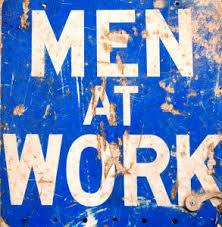Know anyone who’d be right for this?! My latest venture… Thanks for passing it on!
SUMMER INTERN POSITION
She Reads / She Writes, an emerging women-owned, online-based start-up, seeks tech-savvy MBA student or recent MBA graduate to begin work 10 hours/week. Excellent opportunity to acquire hands-on experience in early-stage entrepreneurship, working closely with creative, energetic team of author/entrepreneurs to create preparatory materials for angel investors. Position begins in June 2009 and continues through August 2009, with the possibility of expanding into Fall. Internship is unpaid, however intern may be asked to continue with the Company after formal internship period ends.
Company description:
She Reads / She Writes is a young company seeking to create an online destination for literary women. Created by writers, the site will offer a new way for women readers and writers to form communities, read, write and share content, and lead the way in creating a new paradigm for publishing in a Web 3.0 world.
Traditional publishing houses can no longer afford to promote and support authors as they once did. Web 2.0 has resulted in an abundance of content and a lack of oversight. The result is a new Wild West, in which readers sort through millions of voices to find writing worth reading, and writers are isolated, self-funded solopreneurs.
She Reads / She Writes will leverage the existing power of women readers and writers as both producers and consumers of books to create a portal for literary women, one where quality writers are supported and hungry readers receive guided access to the literary content they seek.  Through curated content, social networking, and the latest in content delivery vehicles, readers will receive personal recommendations, access to authors, community, guidance for book groups, and content they can read in forms that fit their lifestyles. Writers, in turn, will receive networking with peers, services and support (such as instruction in new media forms), classes and coaching on topics related to their craft, and access to readers.
The social networking aspect of the site is in private beta; launch expected in January 2010.
Kamy Wicoff, Founder and CEO, runs a literary salon for women writers in New York City. She is currently working with Deborah Siegel, author, blogger and principal at Girl w/Pen Consulting, to launch the Company.
She Reads / She Writes operates out of New York City.
Responsibilities will include:
•   Market research assistance
•   Business plan development
•   Financial modeling
•   Assistance in preparing presentations for angel investors
•   Tech support
Qualifications:
•   Strong analytical skills, with prior finance experience (coursework, professional, or proven interest) preferred
•   Knowledge of research tools and methods used to evaluate competing markets; financial modeling and presentation skills
•   Entourage, Apps, Facebook, Twitter, and other social networking expertise
•   Mac proficiency, Excel, Powerpoint
•   Detail-oriented and strong organization skills
Perks:
•   A unique apprenticeship in early-stage entrepreneurship
•   Opportunity to work side-by-side with top management
•   Experience completing business plan
•   Networking with prominent women writers and introduction to the world of publishing
Application information:
Please send a cover letter and resume to Kamy Wicoff (kwicoff@yahoo.com) by June 8, 2009. While She Reads / She Writes is a for-profit company, the team believes strongly in the mission of helping women writers succeed. We are looking to work with individuals who share this passion.
 After teaching another fab group of writers up at the Woodhull Institute (welcome, Writers 10!), and whooping it up in Princeton with my WomenGirlsLadies panel last week (thank you Amada! thank you Chloe!), I’m ready to announce the next gig. Here tis:
After teaching another fab group of writers up at the Woodhull Institute (welcome, Writers 10!), and whooping it up in Princeton with my WomenGirlsLadies panel last week (thank you Amada! thank you Chloe!), I’m ready to announce the next gig. Here tis:
 It’s been a quiet-ish week over here at GWP as we’re all recovering from the long weekend. Plus, these twins inside me have been kicking my ass and I’ve been falling behind on this and that here and there–forgive me! But I wanted to let you know where I’ll be, just in case you’ll be there too:
It’s been a quiet-ish week over here at GWP as we’re all recovering from the long weekend. Plus, these twins inside me have been kicking my ass and I’ve been falling behind on this and that here and there–forgive me! But I wanted to let you know where I’ll be, just in case you’ll be there too:
 Was Wall Street’s crash due, in part, to an overload of testosterone?
Was Wall Street’s crash due, in part, to an overload of testosterone? The one, the only Daphne Uviller (who coedited Only Child with me) had a great piece in yesterday’s City Section of the NYTimes — part of the series “Her Tales of the City”. Daph’s essay is a great lead in to her latest book, a novel called
The one, the only Daphne Uviller (who coedited Only Child with me) had a great piece in yesterday’s City Section of the NYTimes — part of the series “Her Tales of the City”. Daph’s essay is a great lead in to her latest book, a novel called  I’ll be teaching next at Woodhull’s
I’ll be teaching next at Woodhull’s Why do some men support gender diversity in leadership while others REALLY DON’T? Catalyst asks this question through a new body of research evaluating men’s involvement with gender diversity in a report released today titled,
Why do some men support gender diversity in leadership while others REALLY DON’T? Catalyst asks this question through a new body of research evaluating men’s involvement with gender diversity in a report released today titled, 